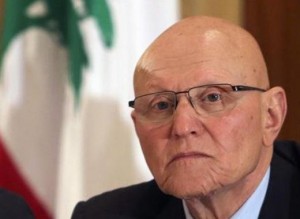They say old habits die hard. For Iran’s elite Quds Force, the secretive external branch of the Revolutionary Guard, the habits of subversion and mafia-style revenge against the Islamic Republic’s adversaries may never die at all. The actions of these self-described promoters of the Islamic Revolution may just determine whether the smiles, handshakes, and twitter posts of President Rouhani signal an end to Iran’s destabilizing meddling in the Middle East — or are a mere diversion from the unrelenting sectarian aims of the regime’s true power brokers.

With the eyes of the world still sharply focused on Iran’s behavior following the clinching of an interim nuclear agreement with the P5+1, the restraint of the Quds Force is already being tested.
A New Turning Point?
On November 19, just as Tehran’s negotiating team arrived in Geneva to hammer out the last details of that agreement, the Iranian embassy in southern Beirut was hit by a devastating double suicide bombing attack. Twenty-three people were killed, including Iran’s cultural attaché and several other nationals whose identities and affiliations have not been disclosed.
On the surface, the attack could be construed as part of an ongoing campaign by Syrian rebel sympathizers to target pro-Assad regime elements in Lebanon, preceded by two other indiscriminant bombings in Hezbollah-dominated suburbs of the city in recent months.
But both Hezbollah and Iranian officials red-flagged this attack for its notable sophistication, indicating the hand of a far more capable foreign power. According to their claims, the attackers knew the location of the ambassador’s office and his itinerary that day, with the second bomber using sophisticated explosives meant to detonate upwards rather than horizontally in order to collapse the building. Continue reading Strategic Analysis: Impact of Iranian covert activity on the interim nuclear agreement
